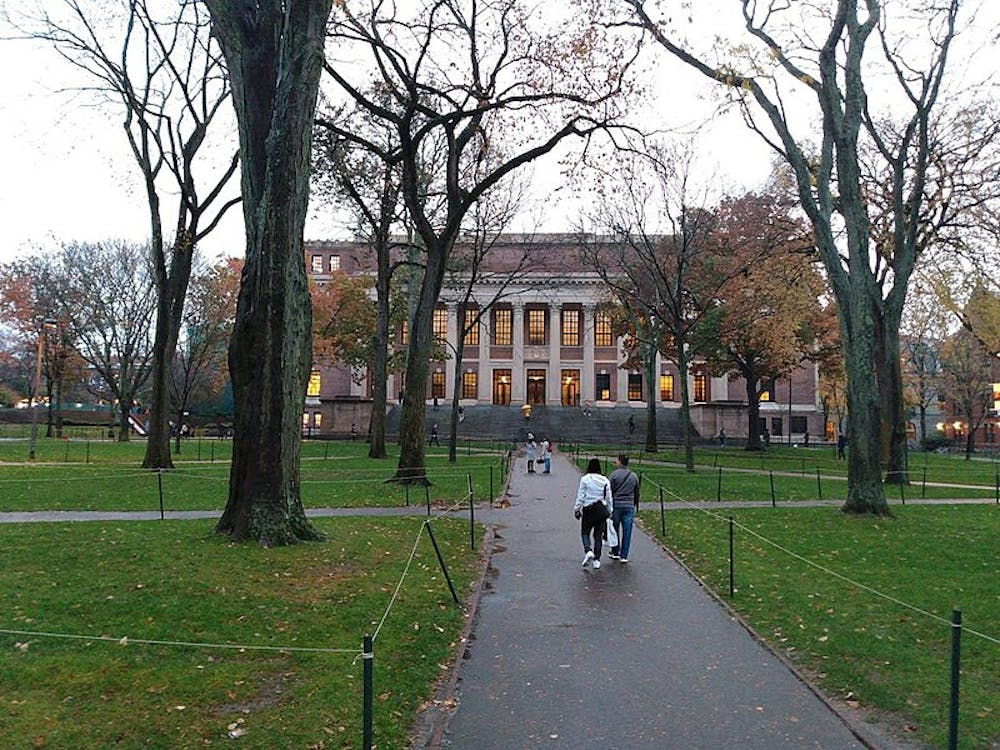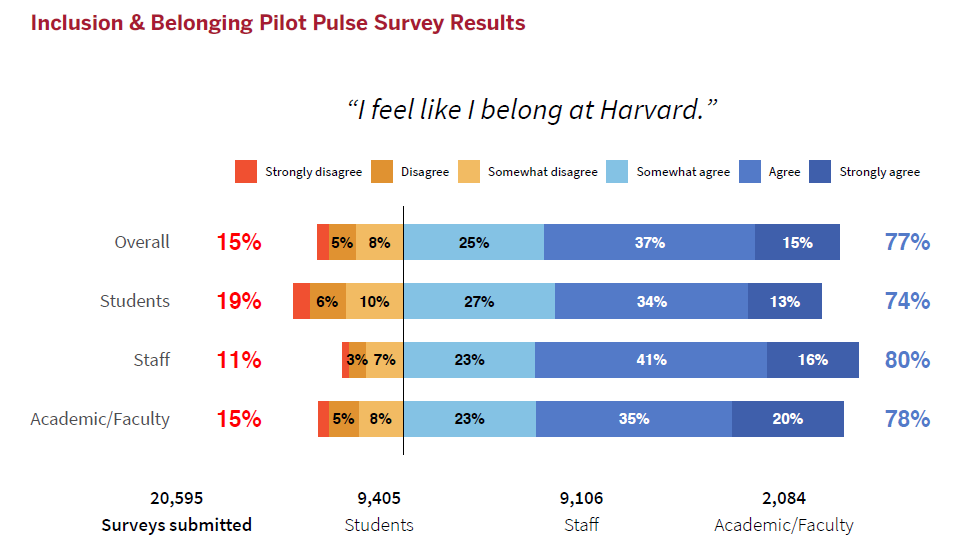Combating antisemitism is an urgent priority that institutions like Harvard University are taking seriously as they seek to create a more inclusive environment. As President Alan M. Garber announced, the university is launching vital antisemitism initiatives that aim to combat both antisemitism and anti-Israeli bias on campus. These initiatives not only provide necessary support for the Jewish community but also foster a respectful dialogue among all students, contributing to campus climate improvement. Harvard’s proactive measures include educational training and the development of policies that encourage viewpoint diversity while addressing the needs of marginalized students. By strengthening community ties and promoting understanding, Harvard is setting a precedent for how academic institutions can tackle discrimination effectively and empathetically.
Addressing hatred towards Jewish individuals, often termed as antisemitism, involves fostering a culture of respect and understanding within academic settings. Numerous anti-Israeli bias measures are being implemented to ensure that students of all backgrounds can thrive without fear of discrimination. Harvard University’s recent actions reflect a commitment to creating a safer campus for Jewish students and staff through comprehensive support initiatives. By enhancing community engagement and implementing effective policies, educational institutions aim to cultivate a harmonious environment where all voices can be heard. Supporting the Jewish community with relevant resources is critical to achieving long-term peace and reconciliation within university settings.
The Importance of Combating Antisemitism on Campus
In recent years, the rise of antisemitism on college campuses has prompted urgent conversations about the well-being of Jewish students. As higher education institutions grapple with preserving a safe and inclusive environment, Harvard University stands at the forefront of these initiatives. The task force reports underscore the mission of combating antisemitism through actionable policies that nurture a sense of belonging among Jewish students. Initiatives such as outreach programs and dialogue facilitation are critical in fostering a community that actively dispels hate and promotes understanding.
Moreover, combating antisemitism involves not only addressing incidents but also reshaping the campus climate to ensure Jewish students feel respected and valued. Harvard’s commitment, as laid out by President Garber, reflects a growing recognition of the need for an environment where students can express their identities without fear. This rejuvenated focus on creating an accepting atmosphere illuminates the path towards stronger community relations and improved morale among all marginalized groups.
Harvard University’s Antisemitism Initiatives
At Harvard University, the recent initiatives aimed at addressing antisemitism are both proactive and comprehensive. These actions arise from the findings of the presidential task force, which engaged with the Harvard community to understand the nuances of the Jewish experience on campus. The task force’s recommendation to revise academic offerings seeks to illuminate the Jewish perspective in discussions about Israel and Palestine, ensuring a balanced approach that acknowledges historical complexities.
Additionally, the plan includes robust measures for supporting students who confront antisemitism, from resource allocation to education on identifying discrimination. These initiatives are designed not just to respond to antisemitic actions but also to create an informed community that appreciates diverse viewpoints. Engaging in outreach and dialogue initiatives will cultivate respect and understanding among peers, thus enriching Harvard’s academic fabric and prioritizing inclusivity.
Addressing Anti-Israeli Bias through Educational Reforms
The recent decisions at Harvard to combat anti-Israeli bias reflect a thoughtful approach to academic integrity and student well-being. By actively revising curricula and academic policies based on the task force’s recommendations, the University acknowledges the need to address the concerns of both Jewish and Israeli students. This move underscores the importance of providing a balanced education that includes a wide variety of perspectives regarding Israel, allowing students to engage critically without the influence of bias.
Moreover, educational reforms aimed at countering anti-Israeli sentiment will promote a respectful discourse, benefitting not only Jewish students but also fostering a culture of dialogue and debate among all community members. Harvard’s commitment to this cause is an effort to ensure that classrooms serve as spaces for free expression, where the complex dynamics of international conflicts can be discussed openly and inclusively.
Improving Campus Climate for the Jewish Community
Improving the campus climate for Jewish students is a pivotal focus of the initiatives announced by Harvard’s Task Force on Combating Antisemitism and Anti-Israeli Bias. Following extensive listening sessions that revealed feelings of alienation, the University recognizes that fostering an inclusive environment is vital to the student experience. By implementing policies that prioritize respectful discourse and supporting Jewish student organizations, Harvard aims to create a nurturing atmosphere that celebrates diversity.
Furthermore, addressing the expressions of antisemitism requires educational outreach not only from the administration but from the broader community as well. Engaging faculty and students in understanding the historical and cultural context of antisemitism will facilitate a more cohesive environment. With efforts to enhance support networks for Jewish students across various platforms, Harvard is making strides towards ensuring that no student feels marginalized or unwelcome.
Supporting Jewish Life on Campus
Supporting Jewish life on campus extends beyond mere acknowledgment of Jewish identity; it involves comprehensive initiatives that celebrate Jewish traditions and promote active participation within the University community. Harvard’s recommendations emphasize the importance of ensuring that Jewish students have the resources and spaces necessary to engage in religious practice and cultural expression freely. This includes bolstering support for Jewish student organizations and enhancing the visibility of Jewish cultural events.
These efforts contribute to a pluralistic campus where students from all backgrounds can share their beliefs without fear of backlash. By fostering a vibrant Jewish community, Harvard not only strengthens its academic environment but also promotes mutual understanding among diverse groups. This holistic support for Jewish life reflects the University’s commitment to creating an inclusive academic community that values every individual’s identity.
Engaging Students in Combating Antisemitism
Engaging students in the fight against antisemitism is essential for cultivating a culture of empathy and respect at Harvard University. The new initiatives call for active student participation in discussions and programs aimed at understanding antisemitism’s impact on the Jewish community. By providing platforms for Jewish students to share their experiences and for non-Jewish students to listen, Harvard fosters a collaborative atmosphere where communal learning can thrive.
Moreover, encouraging student-led initiatives surrounding awareness and education can empower young leaders to take a stand against antisemitism and other forms of bigotry. This grassroots approach not only supports individual growth but also strengthens community ties, ensuring that all students feel responsible for promoting inclusivity on campus. Such engagement practices are crucial in breaking down barriers and eradicating misconceptions that lead to discrimination.
The Role of Faculty in Addressing Antisemitism
Faculty members at Harvard play a crucial role in combating antisemitism and fostering an inclusive academic atmosphere. The initiatives outlined by the task force highlight the need for faculty training on recognizing and addressing antisemitic patterns, thus equipping educators with the tools necessary to create safe learning environments. By actively participating in dialogues and enhancing curriculum diversity, faculty can significantly influence the campus climate and student experiences.
Additionally, faculty-led discussions on issues of discrimination and bias can foster an understanding of the historical context of antisemitism, providing students with the necessary framework to engage critically. By prioritizing these conversations, Harvard’s faculty can serve as beacons of change, advocating for respectful discourse and reinforcing the University’s commitment to academic integrity and diversity.
Future Steps for Sustaining Campus Inclusivity
The commitment to combating antisemitism and anti-Israeli bias at Harvard necessitates ongoing evaluation and adjustment of initiatives to ensure effectiveness. As the University rolls out these new measures, continuous feedback from the community will be integral to refining and improving strategies that support inclusivity. Regular assessments and updates will allow the administration to adapt to the evolving challenges that Jewish and Israeli students face on campus.
Moreover, establishing long-term goals for inclusivity can help solidify Harvard’s position as a leader in combating discrimination. This involves not only adherence to immediate recommendations but also a proactive approach to integrating inclusivity into the very fabric of campus life. As Harvard moves forward, the ongoing commitment to understanding and combating antisemitism will be essential in fostering a safe environment for all students.
Collaborative Initiatives with the Jewish Community
Collaborative initiatives between Harvard University and the broader Jewish community present exciting opportunities for growth and mutual support in combating antisemitism. These partnerships can lead to more comprehensive educational programs, cultural exchanges, and resource sharing, enhancing the experiences of Jewish students on campus. Engaging local Jewish organizations can also facilitate community building and provide students with mentorship opportunities.
Furthermore, involving the Jewish community in discussions about policy changes can create a more responsive administrative system that directly reflects student needs and concerns. By nurturing these collaborative relationships, Harvard not only strengthens its own initiatives but also positions itself as a model for other institutions seeking to address issues of antisemitism and enhance campus climate for their Jewish populations.
Frequently Asked Questions
What are the main initiatives launched by Harvard University to combat antisemitism and anti-Israeli bias?
Harvard University has initiated several key actions to combat antisemitism and anti-Israeli bias which include promoting viewpoint diversity, creating a research project focused on antisemitism, and reviewing disciplinary policies for efficiency. These initiatives aim to improve the campus climate and support students who experience antisemitism.
How does Harvard plan to improve campus climate in combating antisemitism?
To improve the campus climate, Harvard University focuses on fostering respectful dialogue and a sense of belonging. This includes reviewing academic offerings and ensuring that students feel safe and comfortable expressing their views without fear of discrimination or backlash related to their Jewish identity.
What support is available for Jewish students experiencing antisemitism at Harvard?
Harvard University aims to strengthen resources that directly support students facing antisemitism, including counseling services, student organization support, and educational programs that raise awareness about antisemitism and anti-Israeli bias.
What role did the Presidential Task Force on Combating Antisemitism and Anti-Israeli Bias play at Harvard?
The Presidential Task Force played a crucial role by gathering extensive feedback through listening sessions and surveys, analyzing the Jewish experience at Harvard, and providing comprehensive recommendations to address antisemitism and anti-Israeli bias across the campus.
How does Harvard’s approach to antisemitism and anti-Israeli bias reflect its commitment to free speech?
Harvard’s approach emphasizes the importance of preserving free speech while tackling antisemitism and anti-Israeli bias. The university seeks to nurture vibrant debate and open dialogue, ensuring that all students can express their opinions freely and engage respectfully, even in disagreement.
What educational initiatives has Harvard introduced to address antisemitism on campus?
Harvard has implemented educational initiatives aimed at raising awareness about antisemitism and enriching the academic environment by including diverse perspectives on Jewish civilization, the Holocaust, and the Israeli-Palestinian conflict in its curriculum.
In what ways can the Harvard community support those affected by antisemitism?
The Harvard community can support individuals affected by antisemitism by participating in awareness campaigns, attending workshops on inclusivity, and collaborating with student organizations that promote Jewish life and cultural understanding.
What are the expected outcomes of Harvard’s actions against antisemitism?
The expected outcomes include a more inclusive campus environment, heightened awareness regarding antisemitism and anti-Israeli bias, improved support systems for affected students, and enhanced educational programs that encourage respectful discourse and understanding across diverse viewpoints.
How can students contribute to combating antisemitism on their campuses?
Students can contribute by engaging in open dialogues, educating themselves about antisemitism, participating in related campus initiatives, and advocating for policies that promote inclusivity and respect for all identities within their academic communities.
What historical context did the task force consider in addressing antisemitism at Harvard?
The task force conducted a historical analysis of the Jewish experience at Harvard, revealing how both student demographics and global events have shaped perceptions of antisemitism on campus, thus informing their recommendations for a more equitable academic environment.
| Key Areas of Focus | Description |
|---|---|
| Nurturing Belonging | Promoting respectful dialogue among students and ensuring a sense of community. |
| Policy Revising | Reviewing and improving policies on disciplinary actions and training programs to address antisemitism. |
| Strengthening Academic Life | Upholding academic excellence and integrity while addressing antisemitism and promoting inclusive education. |
| Research Initiatives | Launching a research project dedicated to the study of antisemitism and its impacts on campus. |
| Community Engagement | Creating programs for dialogue and understanding between diverse student groups. |
Summary
Combatting antisemitism is a critical issue that requires comprehensive action within academic institutions and communities. Harvard University is implementing a range of initiatives to ensure that all students, especially Jewish and Israeli individuals, can express their identities without fear. Through the recommendations of the Task Force on Combating Antisemitism and Anti-Israeli Bias, the University aims to foster an inclusive environment that values respectful dialogue, enhances supportive resources, and enriches academic offerings about Jewish experiences and perspectives. By proactively addressing these concerns, we contribute to a more equitable and just society.




